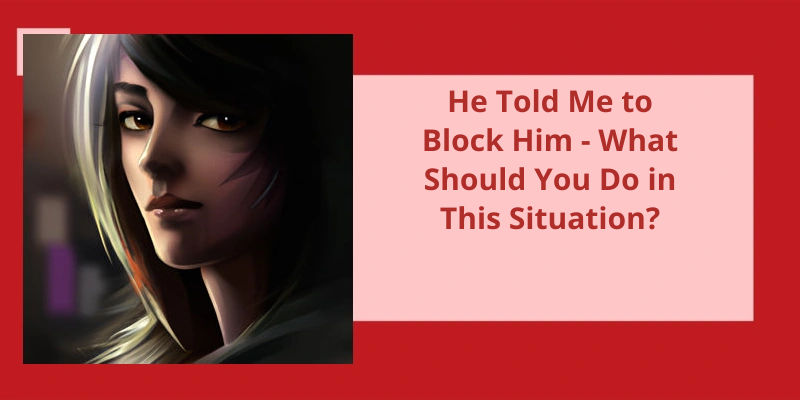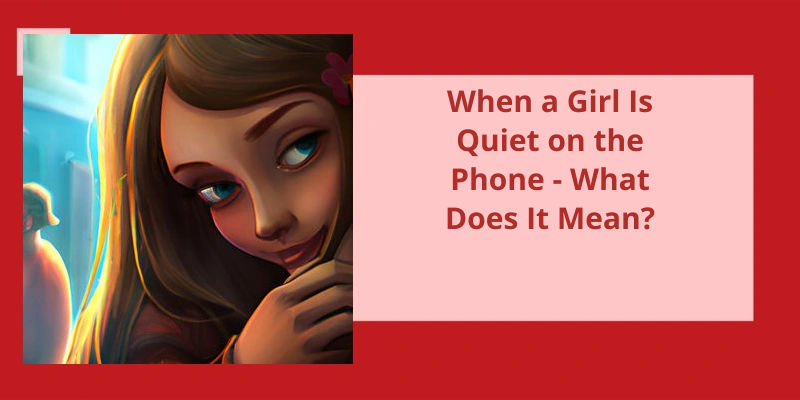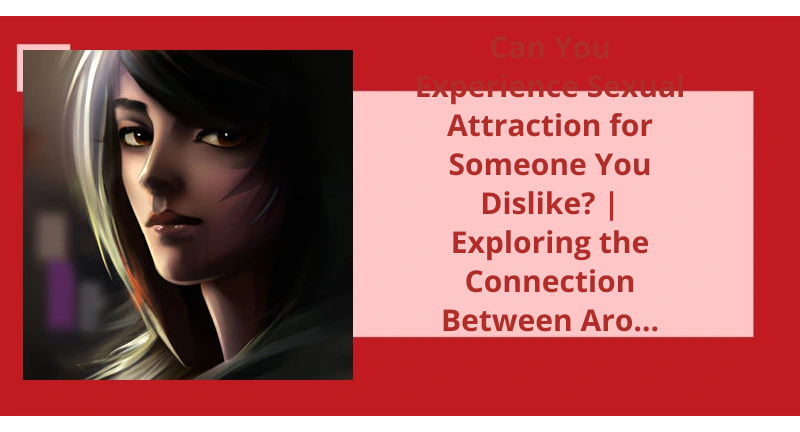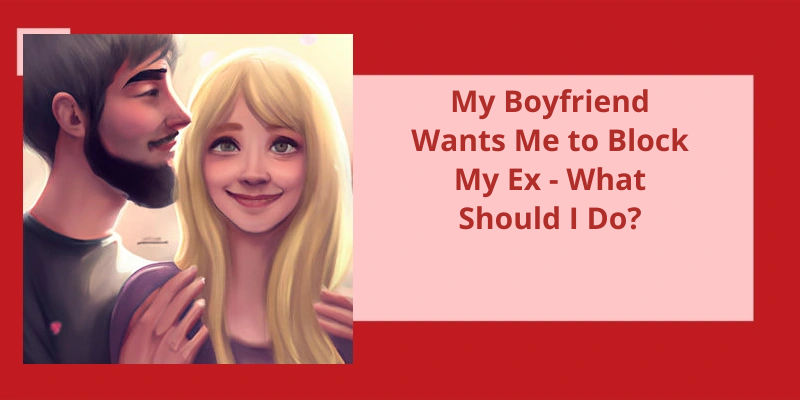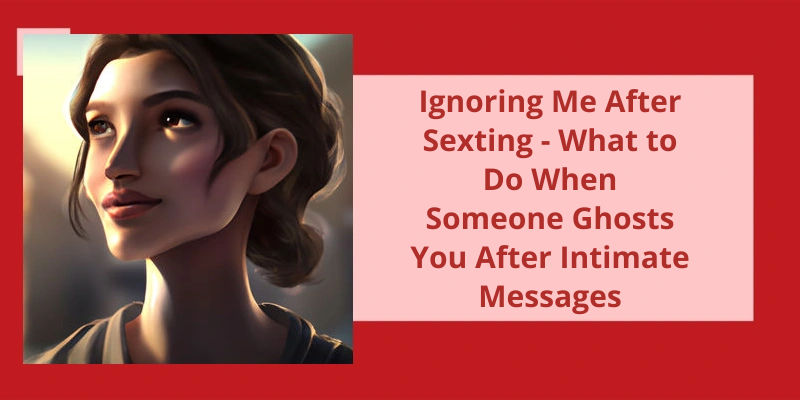When faced with the prospect of blocking someone, it's easy to feel conflicted. Whether it's a friend, family member, or someone you barely know, the decision to cut off contact can be difficult. But sometimes it's necessary, especially when the other person's behavior is damaging to your emotional or mental well-being. And when someone explicitly asks to be blocked, the situation can feel even more complicated. Perhaps they've hurt you, insulted you, or betrayed your trust, and now they want to sever all ties. Whatever the reason, deciding whether to oblige their request can be tough.
Is It Rude to Block My Boyfriend?
Now, if you do want to explore the question of whether it’s rude or not to block your boyfriend, there are a few things to consider. First of all, it’s important to remember that every situation is unique. What works for one couple might not be appropriate for another couple.
One thing to think about is why you want to block your boyfriend. Are you doing it because youre feeling hurt or upset? Are you doing it to punish him for something he did? If youre blocking him as a way to get revenge or to hurt him in some way, then that could be seen as rude. However, if youre blocking him because you need some space to think or because youre feeling overwhelmed, then it’s completely understandable.
Another factor to consider is how your boyfriend would react to being blocked. Does he have a history of being controlling or abusive? If so, then blocking him could be the best thing for your safety and well-being. However, if hes a generally reasonable person who’d be hurt by being blocked, then it might be more polite to have a conversation with him about why you need some space.
If youre feeling uncertain or conflicted about it, it might be helpful to talk to a therapist or a trusted friend to get some perspective. Remember, you deserve to be in a relationship where you feel safe, valued, and respected.
It’s a common scenario nowadays when someone wants to distance themselves from another person. But what does it really mean when a guy asks you to block him? It could mean that the relationship has taken a sour turn and he wants to cut all ties with you. In this article, we will delve deeper into the possible reasons behind this request and what to do if you find yourself in this situation.
What Does It Mean When a Guy Asks You to Block Him?
It may be a form of avoiding confrontation. The guy may not be interested in continuing a relationship with you but doesn’t want to hurt your feelings by telling you directly. Asking to be blocked is an indirect way of ending communication and avoiding any further interactions.
Another reason why a guy may ask you to block him is to move on from a toxic or unhealthy relationship. Sometimes, the best way to move on from someone is to completely cut off communication. This may include blocking social media accounts, phone numbers, and email addresses. By asking you to block him, he’s taking the necessary steps to move on and focus on personal growth and healing.
Some guys may ask you to block them as a way of testing your commitment. It may be a tactic to see if you care enough about the relationship to go through with the request. If you comply, it may signal to him that you’re willing to do what it takes to maintain the relationship. However, this approach is manipulative and shouldn’t be tolerated.
It could be a sign of mental health concerns such as anxiety, depression, or inability to handle conflict. In such cases, it’s important to encourage him to seek professional help and support him during this time.
How to Respond When a Guy Asks You to Block Him
- Consider why he’d be asking you to block him. Did he do something that caused harm to you or someone you care about?
- If he did cause harm, it may be appropriate to honor his request to limit contact to protect yourself.
- If he didn’t do anything harmful, it’s ok to say no and explain that you don’t feel comfortable blocking someone without a valid reason.
- Remember that you’ve the right to set boundaries and prioritize your own well-being.
- Be honest and communicate your feelings clearly.
- If you do end up blocking him, try to focus on moving forward and healing from any negative experiences.
Source: What does it mean when a guy tells me to block him? – Quora
The act of blocking someone may leave the blocked party feeling confused and hurt, wondering what went wrong. But it’s important to consider that there could be a myriad of reasons why someone decides to block someone else. In the case of a guy blocking a girl, it might not necessarily indicate a lack of interest or care. Rather, it could be a sign that he’s struggling to sort out his emotions and may need some time and space to figure things out.
Does Blocking Mean He Cares?
Sometimes, guys may block you because you may have triggered insecurities within him. He may have felt threatened or intimidated by your confidence or success and wanted to distance himself from it. It could also be that he needs space to focus on himself and his own personal growth without the distraction of your presence. Blocking you might be his way of prioritizing his own needs over the relationship.
It’s important to note that blocking isnt necessarily a healthy or productive way of dealing with relationship issues. It’s up to both partners to work through any issues they may have and find a way to move forward together.
It’s important to approach the situation with empathy and understanding, while also prioritizing your own emotional well-being and boundaries.
How to Handle Being Blocked in a Relationship
- Take some time to process your emotions and thoughts
- Reflect on what led to the blockage in the relationship
- Consider talking to a trusted friend or therapist
- Communicate openly and honestly with your partner
- Be willing to compromise and make changes to improve the relationship
- Take some time apart if needed
- Try to move forward and focus on a positive outcome
Now that we’ve discussed the etiquette of blocking someone, let’s delve into the reasons why someone might choose to block another person and the potential consequences of doing so.
Is It Bad Manners to Block Someone?
When it comes to blocking people on social media, opinions are mixed. While some people argue that it’s rude and unprofessional to block someone, others say that it’s necessary for your mental and emotional well-being. Ultimately, it comes down to the individual and their own personal boundaries.
One argument in favor of blocking without warning is that it can be a form of self-care. If someone is constantly causing you stress or anxiety, blocking them can help you to protect your own mental health. While it may seem harsh to do so without explanation, sometimes it’s the best option for your own well-being.
That being said, there are also situations where it may be appropriate to explain why you’re blocking someone. For example, if someone is sending you harassing or threatening messages, you may want to let them know that their behavior isn’t acceptable and that you’ll be blocking them if it continues. This can act as a deterrent, and may even stop the behavior altogether.
In general, it’s best to use your judgment when deciding whether or not to tell someone that you’re blocking them. If you feel that they’d be hurt or confused by your actions, it may be worth explaining yourself. On the other hand, if you don’t feel comfortable doing so or if you think it would only cause more drama, it’s perfectly acceptable to simply block them without warning.
Ultimately, the decision to block someone is a personal one, and there’s no right or wrong answer. It’s important to prioritize your own well-being and mental health, while also being mindful of how your actions may affect others. By being considerate and respectful, you can navigate this tricky etiquette issue with grace and tact.
When it comes to dealing with unwanted communication, there are different approaches you can take. One of the most drastic measures is to block the person, effectively cutting off all contact. However, there may be situations where ignoring the person is a better choice, especially if the behavior is minor and doesn’t justify such a strong response. In this article, we will explore the pros and cons of both blocking and ignoring and provide guidance on when to choose each option.
Is It Better to Block or Ignore?
When it comes to dealing with difficult people, theres a lot of debate over whether it’s better to block or ignore them. On one hand, blocking them can provide a powerful sense of closure and control. By cutting off contact entirely, youre effectively saying that youre done with the situation and don’t want to have anything further to do with the other person.
However, blocking can also be seen as a bit extreme. If youre dealing with someone who’s simply annoying or irritating, it might be more productive to simply ignore them and move on. This can help to diffuse the situation without escalating things, and can also prevent the other person from feeling like theyve won by making you react emotionally.
Of course, the decision to block or ignore someone depends largely on the specific situation youre dealing with. If someone is being threatening or abusive, then blocking them is definitely the safer option. Likewise, if youre dealing with a stalker or online harasser, you should definitely block them immediately and report the behavior to the appropriate authorities.
On the other hand, if youre just dealing with someone who’s constantly complaining or making unreasonable demands, ignoring them might help to de-escalate things and prevent them from causing any further disruption. By refusing to engage with their behavior, youre sending a clear message that youre not going to be pushed around or manipulated.
Sometimes, blocking is the only way to ensure your safety and wellbeing. Other times, ignoring can be the more effective (and less negative) way to deal with an unpleasant situation. Whatever you decide, it’s important to hold firm to your boundaries and be clear about what you’ll and won’t tolerate from others.
The Potential Consequences of Blocking or Ignoring Someone in Different Situations
- Loss of a potential relationship or friendship
- Misunderstandings or lack of communication
- Inability to resolve conflicts
- Loneliness or isolation
- Missed opportunities for collaboration or networking
- Negative impact on mental health
- Possible legal consequences in certain situations
- Repercussions on one’s reputation or social standing
It’s clear that blocking someone can have negative effects on their mental health. But what about the person doing the blocking? Are they immune to the consequences of their actions? In this article, we will explore the impact of blocking on both parties involved and discuss whether it’s a justified course of action in certain situations.
Is Blocking Someone Damaging?
Moreover, being blocked can generate a feeling of being excluded and ignored, which research shows is one of the most disconcerting emotional experiences for humans. This can lead to feelings of loneliness and isolation, depression, and even suicidal ideation. So, from a psychological standpoint, blocking someone can be quite damaging and harmful.
However, there are times where blocking someone can be necessary for ones safety. In such cases, the decision to block someone may be seen as a form of self-care and an act of self-preservation rather than one of aggression or harm.
It’s also important to note that blocking someone online may not have the same impact as blocking someone in real life. Social media platforms and other technology-based communication don’t necessarily represent the same level of real-life social connections and rejection.
The Impact of Social Media Algorithms and Blocking on Mental Health.
- Increase in anxiety and depression due to constant comparisons and pressures to gain social media attention
- Algorithms that prioritize content based on engagement, leading to a narrow and biased flow of information
- Blocking and censorship of certain views and perspectives, contributing to echo chambers and further division
- Exposure to graphic or triggering content without warning, potentially causing trauma
- Decrease in real-life social interaction and communication skills
- Increase in cyberbullying and trolling behavior
- Unrealistic expectations and standards perpetuated by curated and filtered content
- High usage of social media leading to addiction and negative impacts on sleep and productivity
Conclusion
In conclusion, the act of blocking someone on social media or any other platform is a personal decision that shouldn’t be taken lightly. Whether it’s for your safety or mental well-being, it’s important to prioritize your own needs and boundaries. While it may be difficult to sever ties with someone you care about, sometimes it’s necessary for your own growth and happiness. If someone has asked you to block them, it’s important to respect their wishes and give them space. Ultimately, it’s up to each individual to decide what’s best for themselves and their own personal journey.

